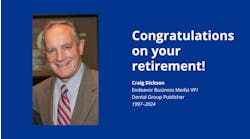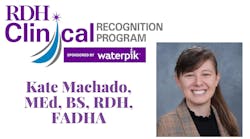A colleague and I discussed the unreasonable behavior of teenage boys in that bridge between middle school and high school. My sons gave me a share of headaches too, and I was trying to be sympathetic about how it's a phase for boys.
When Neil Armstrong and Buzz Aldrin stepped on the moon, I was in the middle of that phase. My parents, who couldn't fathom men accomplishing that feat during their lifetimes, pleaded mightily with me to sit down in the family den and watch it on television. I said "no" and stormed outside to do something that I have no recollection of, and was likely totally meaningless in the grand scheme of things.
My grandkids may some day ask what it was like to observe the history of arguably mankind's most significant achievement, and I'll have to say, "Yes, it was. But I was a bit of a brat that day and didn't see it."
Fortunately, I matured enough later to develop an appreciation of the space program (although admittedly there's still too long of a pause as I decide if I want to watch a science fiction movie or a comedy). Dental hygienists, I suspect, don't spend much of the workday thinking about NASA and its long list of accomplishments.
I enjoyed the article by Andrea Kowalczyk, RDH, about the space program and her connections with it (page 42).
As implied above, I'm not enough of a science fiction fan to turn RDH into an outlet for this type of information. In my opinion, Aliens, complete with its futuristic Marines, is the best of the genre, but I don't watch too many films to see if there's a better one. But it's nice to take a break and see the "dental hygiene" element of space.
---
This issue of RDH coincides with a couple of external events. First, the article by Dr. Heidi Emmerling Muñoz (page 18) is on the delicate subject of asking for a raise. As you will read, the emphasis is on communicating the desire for more income in the right way and at the right time.
Naturally, RDH eVillage, the electronic sister publication of RDH, would like to know how your recent negotiations fared. The annual salary survey conducted by RDH eVillage will be linked next month, and we value your input about trends in compensation in your area.
Secondly, you will receive this issue during the RDH Under One Roof conference, or shortly thereafter. We hope we are seeing you walking the halls of Caesars Palace. If not, this is good time to tell you about the 2016 location. The conference will be hosted July 28-30, 2016, at Gaylord National Resort and Convention Center just outside of Washington, D.C. This will be the first return to the District of Columbia since 2007. Actually, the resort is about five miles outside the district, in Maryland along the banks of the Potomac as it winds southward away from the capital. Please keep an eye on the agenda for the meeting by visiting RDHUnderOneRoof.com.
---
Speaking of the continuing education that RDH Under One Roof provides, RDH eVillage participated in a survey of all licensed dental professionals regarding the ease of renewing licenses and complying with continuing education requirements.
Overall, dental hygienists find the process easy to accomplish within the time restraints of career and personal life.
However, this question was asked: In your opinion, do consumers in your state receive a higher level of dental care as a result of the required continuing requirements?
Only 42% affirmed a "higher level" of dental care as a result of participating in courses. While many seminars and CE articles do take a "refresher" approach to the information presented, many speakers and authors do devote a considerable amount of time to deliver the breaking news of what it takes to practice dentistry.
Is it a shock to you that more than half of your peers do not believe patients benefit as a result of continuing education? If it isn't, how does required continuing education need to evolve to achieve its intended effect?
Mark Hartley
[email protected]







